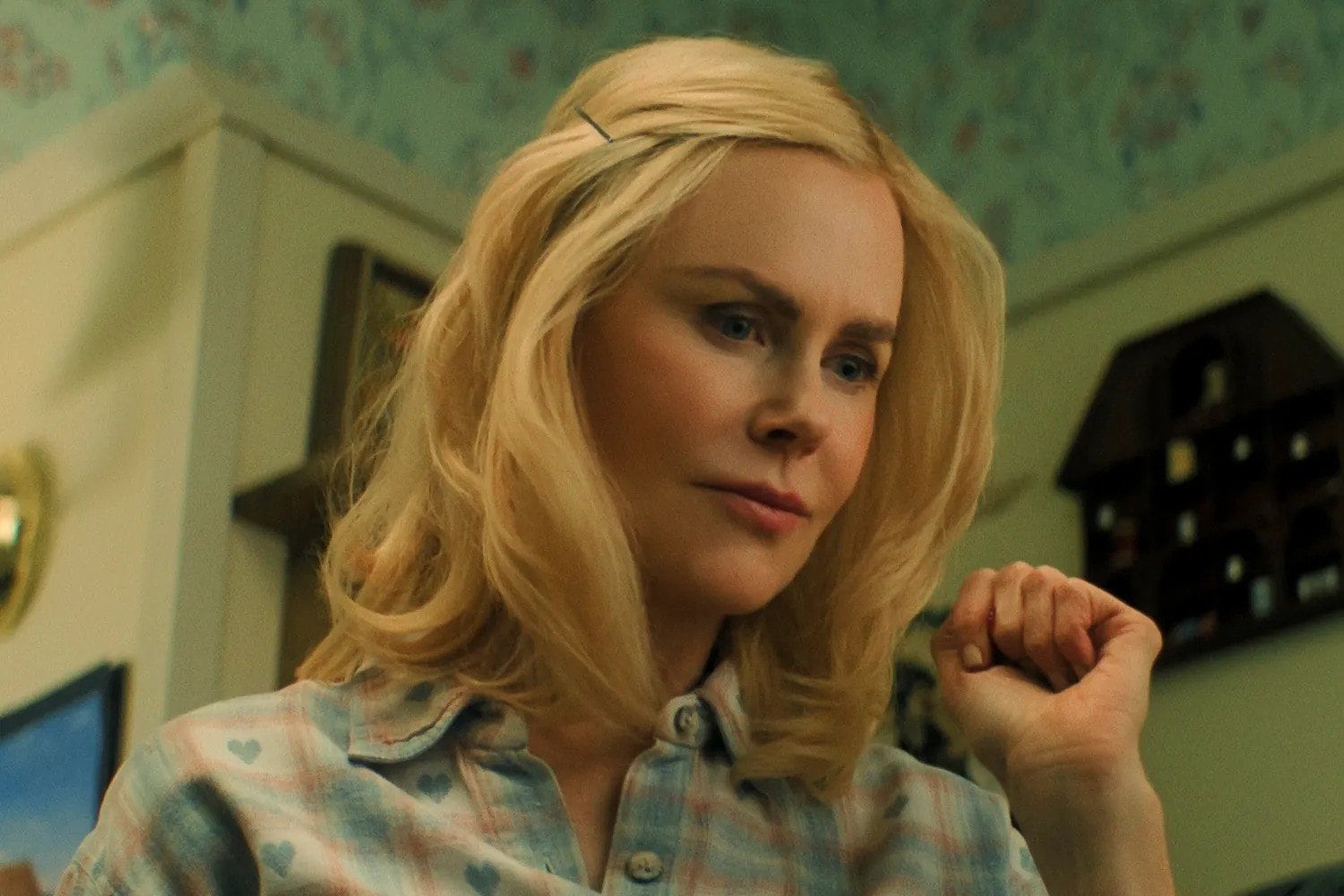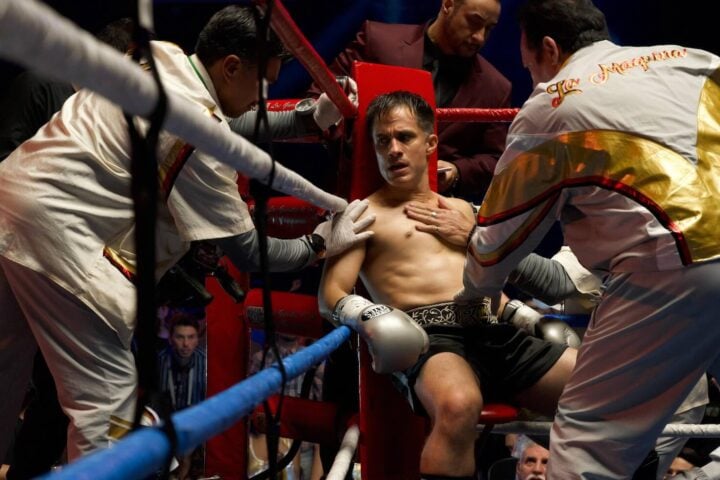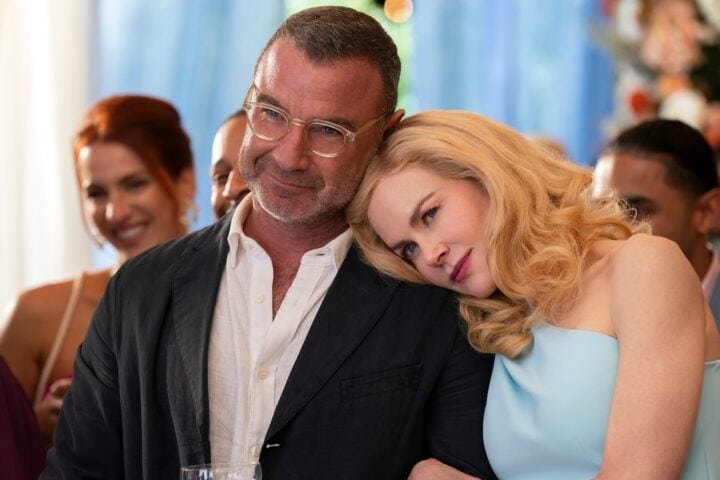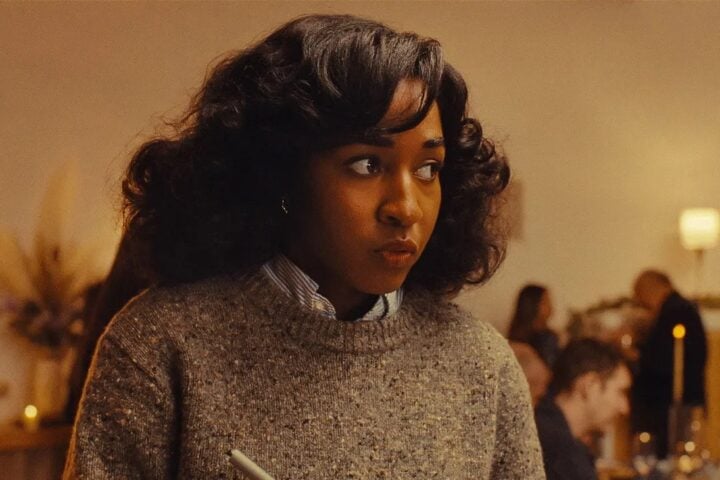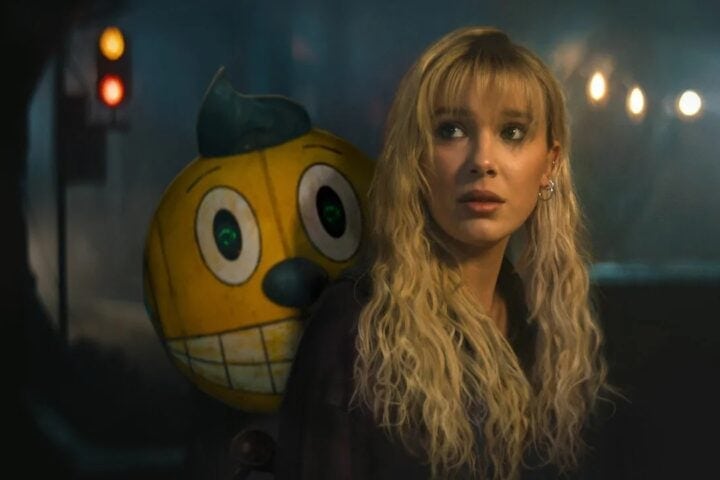“Look closer,” exhorted the tagline for a certain 1999 best picture winner that could just as easily apply to Mimi Cave’s thriller Holland, which seeks to find the rot beneath the veneer of American suburbia. In Fresh, Cave’s feature-length directorial debut from 2022, misogyny is literalized as cannibalism, but the rot is harder to boil down to a simple metaphor here, underlying everything like decayed animal matter that feeds a bed of tulips. Narration bookends the film, but it’s aloof and tidy, as if Holland doesn’t seem to want us to know what to make of it. Look closer it orders us, but what are we meant to see?
Nancy Vandergroot (Nicole Kidman) finds her perfect life upended by a missing pearl earring. Living with her doting optometrist husband, Fred (Matthew Macfayden), and precocious son, Harry (Jude Hill), in Holland, Michigan, Nancy is confounded by the loss of the bauble which she presumes to have been stolen—a sin unheard of in the sleepy Midwestern town.
Nancy is further thrown for a loop when she starts to suspect Fred of having an affair, a suspicion she shares with kindly shop teacher Dave Delgado (Gael García Bernal), a recent transplant who’s very different from Holland’s good people of happy Dutch heritage. He agrees to help her suss out what Fred is up to, and as the two are drawn into an extramarital romance of their own, Fred’s shadowy doings begin to appear more and more sinister. But is something nefarious going on, or is Nancy just aching to escape her picture-perfect life?
There’s something consistently off about Holland. Cinematographer Pawel Pogorzelski’s images are both vibrant and strangely sallow, evoking pale egg yolks and midday light through wet, yellowed leaves. The Midwest shabby-chic set dressing feels lived in but overly manicured, dusty yet plastic. As much Dutch influence is present in the city’s landscapes, its food, and festival dress, it paradoxically feels like a place unmoored from history.
That the film wasn’t even shot in the real Holland, Michigan, likely adds to this sense of no-place. Fred and Harry are often shown playing with a model of their town more charming than the sickly husk we’d call the “real” thing, and Cave stages sequences where her leads are shrunk down to a fraction of their size to underline how truly false the world they inhabit is.
Nancy is a woman who’s ostensibly bought into the dream of the place with its Leave It to Beaver-style small-town mentality but tells us at the start that her life was a mess before coming to Holland and marrying Fred. It’s impossible to buy Kidman as a modest home economics teacher, but the discomfort in watching Holland is not knowing if this is intended or, like Nancy herself, you’re looking for things that aren’t there. Unlike the cutting Fresh, Holland is naggingly remote to the point of near hostility. Its story is strangely torporific, getting where it needs to not with a sense of intrigue but dreadful, listless obligation.
There’s also something sleazy about its early-2000s mid-budget thriller gloss and hankering for bloodshed. And yet, like so much in this aggressively contradictory film, in spite of its issues, there’s a weird pull to Cave’s inert vision of white female dissatisfaction. Nancy describes her life to be as lulling as “carbon monoxide,” and the same could be said for the movie itself.
Since 2001, we've brought you uncompromising, candid takes on the world of film, music, television, video games, theater, and more. Independently owned and operated publications like Slant have been hit hard in recent years, but we’re committed to keeping our content free and accessible—meaning no paywalls or fees.
If you like what we do, please consider subscribing to our Patreon or making a donation.

